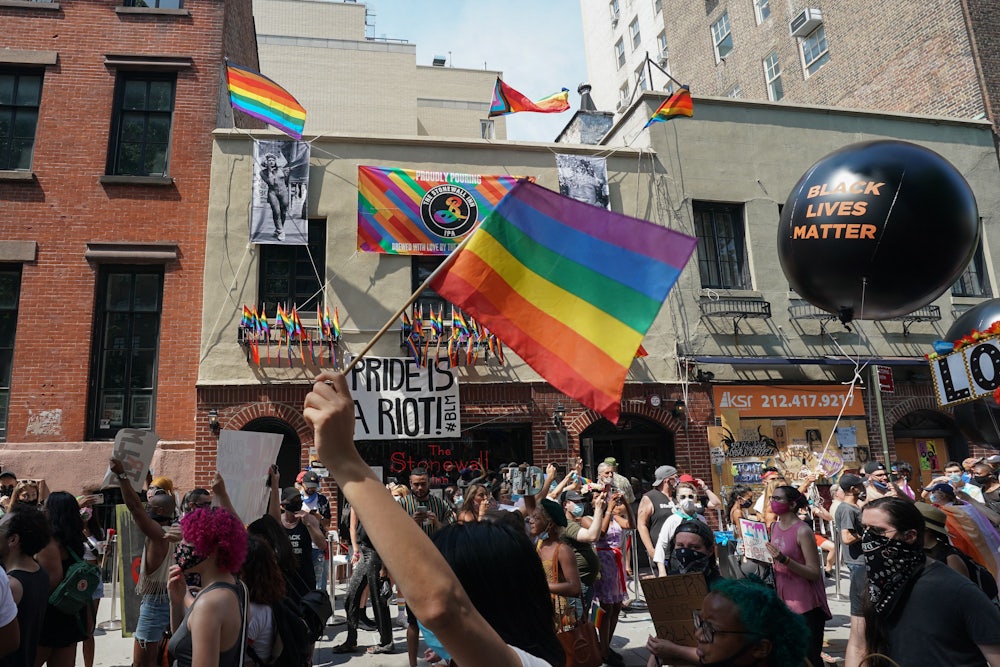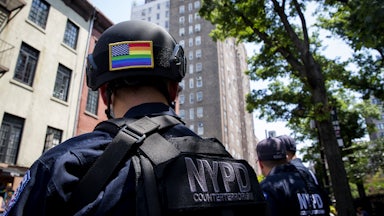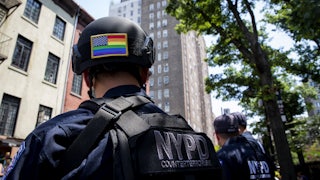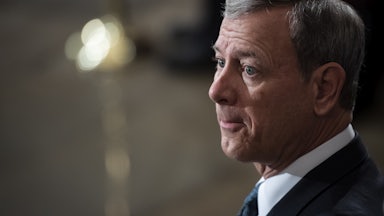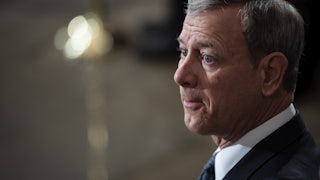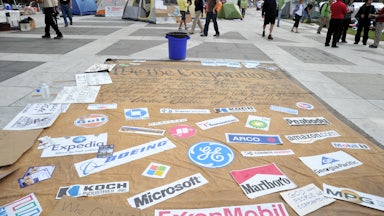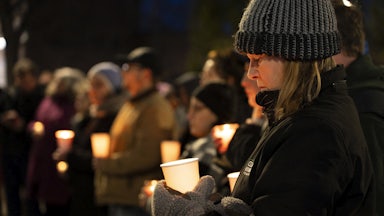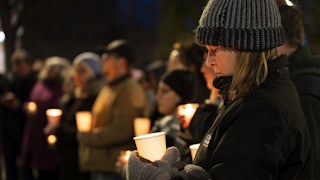My friend Dan Savage and I had a little exchange on Twitter the other day.
Dan was commenting on yet another advance for the LGBT movement: We scored our first openly gay NFL player when Carl Nassib came out this month. Dan tweeted, correctly: “Ballet dancers and hairdressers and drag queens made it safe for football players to come out and not the other way around.”
I retweeted it, adding to his list my own reminder: “And activists. Happy Pride!”
Dan was right. As he explained, “Effeminate men who couldn’t hide who they were and were constantly told they were weak—because our misogynistic culture associates femininity with weakness—those guys made it safe for masculine men to come out.”
And I was right, too. The progress we celebrate in Pride Month didn’t just happen. It wasn’t just effeminate (or noneffeminate, for that matter) men, or drag queens, or lesbians, or nongay allies living their lives, even bravely, who made the world better. Nor was it some magic bending of the moral arc of the universe. The change we celebrate took activism.
We (and much of the world) celebrate Pride Month each June, and specifically this day, June 28, to mark when a diverse group of people (fitting most of the above categories and more) fought back against then-ubiquitous societal stigma and oppression, police harassment, and legal exclusion with days of protests (some would say riot) at the Stonewall Inn, just blocks from where I live now in New York City. The Stonewall uprising wasn’t the first such act of rebellion by the beleaguered and oppressed gay and transgender communities, but it was the one that proved to have legs.
Stonewall birthed a robust and diverse movement that kept on going. Following Stonewall, we saw an explosion of organizing and organization building. Following Stonewall, we saw people come out and come together to shatter the silence, break open the closet, and lift our voices in defiant demand and persistent, persuasive conversation—the chief engine of change. Following Stonewall, we saw sustained litigation, lobbying, electoral engagement, fundraising, and community building—what Dr. Martin Luther King Jr. called the methodologies of change—and following Stonewall, all that work has never stopped. In that sense, Stonewall was the turning point—rightly, if imprecisely, now considered (and, yes, celebrated) as the dawn of what we now call the modern LGBTQ movement, a model of success.
Thanks to activism, our movement has made enormous progress and wrought an epic transformation since Stonewall, not just in political achievement—such as attaining the freedom to marry; passing nondiscrimination laws; and winning Supreme Court cases, such as last year’s victory for employment protections—but in changing hearts and minds and increasing inclusion and acceptance.
Take the marriage equality win. I wrote my law school thesis in 1983 arguing that despite the defeats we were handed by courts, including the Supreme Court in 1972, in the first wave of cases brought by pioneering same-sex couples seeking the freedom to marry in the immediate aftermath of Stonewall, we shouldn’t take that no for an answer. I founded and led a campaign, and for 32 years we drove a strategy and leveraged a broad and growing movement to victory in the Supreme Court on June 26, 2015. When I first wrote the paper and started pressing for us to keep trying, polling showed support for the freedom to marry at 11 percent. This month—six years after our triumph—Gallup reported that now a whopping 70 percent support marriage equality; including, for the first time, even a majority of those still willing to call themselves Republicans.
Of course, there is so much more to do. We need to pass federal civil rights laws, such as the Equality Act now pending in the Senate, and comparable measures at the state and local levels. We need to continue to grow the voices of support—businesses, faith leaders, and houses of worship, schools, medical and public health authorities, and so on. We need to tackle the political dysfunction that has the Senate, Republican-controlled and gerrymandered state legislatures, and too many judges and justices way out of step with the vast majority of Americans who have come, since Stonewall, to support the full inclusion and legal equality of LGBTQ people. And because, in addition to good laws, we want good lives, we must make change felt in every community, every part of the country, and every corner of the globe.
In that work, the marriage lift has proven to be the gift that keeps on giving. The support, the allies, and assets the marriage work brought to our cause are now there as we work to defeat attacks—the wave of anti-gay and anti-trans legislation we see in several states; the effort to carve out licenses to discriminate under the banner of religious freedom; the continuing isolation and stigma too many LGBT individuals continue to endure; and even the similar barrage against immigrants, people of color, and women’s empowerment. All of this takes activism.
In ordinary times, I might just stop this piece there: celebrating our history and progress and summoning people to continued activism. But of course, these are not ordinary times. We are only now emerging, somewhat nervously, from the pandemic—thank you, science and activist government. And while, fortunately, we have elected a president and, by the slimmest of margins, a Congress that aim to undo the damage of the previous regime and build back better, America faces an even bigger threat to our national health than Covid-19: the threat to our democracy itself. The viruses of authoritarianism and division still rage in our body politic, the Republican Party has declared war on our system itself, and if we don’t cure the illness and vaccinate against the agents and enablers of infection, we may lose all.
So, important as activism is, this Pride Month we need to talk not just about activism but about the need for serious repair to the system within which activism can prevail.
After all, what enabled the Stonewall rebellion, the activism, and, thus, the progress we celebrate was what we as Americans are lucky to have: a Constitution that promises freedom and equality, a system that allows for protest and organizing, a vigilant press, self expression, recourse to an independent judiciary, and the right to engage elected officials, and, when necessary, to vote them out. All these are under attack by those who brought us the prior regime.
The American system and its promises, however imperfectly realized, are what enabled the Stonewall and post-Stonewall generations of activists to tackle the oppression they endured and to spur wins that led to the achievements I described. But the guarantees of our pluralistic and free democracy are under unprecedented assault. And so we must now urgently add to our LGBTQ movement “to do list” combating the assault on liberal democracy itself, along with the underlying racial and economic inequality that fuels that assault. We must turn America’s weakened guardrails into new stone walls of democracy.
As we look around, this Pride Month—and what a joy to be able to go outside and gather again!—we see everywhere, from storefronts to corporate ads to apparel and tchotchkes, the paraphernalia of rainbow flags and various permutations thereof. It’s tempting to feel like Judy Garland, who, when accosted by one too many fans imploring her once again to sing “Over the Rainbow,” is said to have snapped, “Lady, I’ve got rainbows coming out of my ass.”
But this is no time for cynicism, fatigue, despair, surrender, or complacency. It is a time for activism. And not just for a month … but until we get the job done. History tells us, proper celebration of Stonewall encourages us, and the urgency of the threat to democracy itself demands of us: Keep going.
